Reed’s 2013-2014 Public Policy Lecture Series continues its annual tradition of bringing compelling speakers to campus to address important issues of politics, policy, and political change.
Justin Levitt: “The Future of Voting Rights After Shelby County v. Holder”
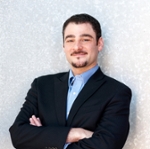
October 15
Tuesday
4:30-6:00 p.m.
Psychology 105
In the arena of voting rights, "injustice anywhere is a threat to justice everywhere." So wrote Professor Justin Levitt, quoting Rev. Martin Luther King, in testimony this summer before the Senate Judiciary Committee. Voting rights, Levitt continued, are not only fundamental, but are "uniquely resistant to normal modes of enforcement; they are extraordinary rights in need of extraordinary protection." But what form will this enforcement take? Legal scholars have been warning for years that the pre-clearance formula of the Voting Rights Act was at risk, but there is virtually no chance that a Congress that can't even agree to pay its debts will agree on a new coverage formula. These extraordinary rights are at extraordinary risk.
We are pleased to welcome to Reed College a leading voting rights scholar to help our community understand these important legal and political issues. Justin Levitt is currently an associate professor of law at Loyola Law School, and has previously worked as the National Voter Protection Counsel for the Obama campaign in 2008 and subsequently served for five years as counsel at the Brennan Center for Justice at the NYU Law School.
Sponsored by the Elizabeth C. Ducey Political Science Lecture Fund
Reed College Joins Portland State University and Lewis and Clark College to present: "Beyond the Arab Uprisings: Reflections on a Changing Middle East"
A series of panel discussions and lecture events taking stock of changing social, cultural, and political dynamics in the Middle East and North Africa in light of the recent uprisings and civil conflicts, and their effects across the region and the globe. How have the conflicts affected the lives of those who have stayed at home or been forced abroad? How have local actors conceptualized the changes in art and social media? What are the prospects for ongoing state stability and regional peace? What should be the role of international actors like the US, itself still coming to terms with the fallout from its interventions in Afghanistan and Iraq?
Reed College: “Art and Media in the Arab Uprisings”
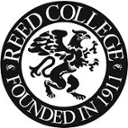
November 1
Friday
4:00 p.m.
Psychology 105
The popular uprisings across the Middle East and North Africa over the past several years have made innovative use of new media and the creative arts as tools of struggle and modes of representing present sufferings and future visions to various publics. The panel of anthropologists and art historians will explore these new arts and media landscapes in the context of violence and upheaval. Focusing on Egypt, Iraq, Palestine, and the Gulf, panelists will share their research and reflections on the future of creative expression and media representation in a region in tumult. Panelists include Nada Shabout (art history, University of North Texas), Jeannie Sowers (political science, University of New Hampshire), and Jessica Winegar (anthropology, Northwestern). Kris Cohen (art history, Reed) will serve as a discussant.
Cosponsored by the departments of anthropology, art, and political science.
Lewis and Clark College: “Gender and Politics in the New Middle East”
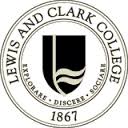
November 1
Friday
4:00 p.m.
JR Howard Hall 202
Bringing together noted scholars in political science, anthropology, international studies, and women’s studies, the panel will address current research in gender and politics in the Middle East. Panelists will particularly address how the recent conflicts, uprisings, and displacements in the region have impacted gender norms and relations. Panelists include David McMurray (anthropology, Oregon State University), Isis Nusair (women's studies, Denison University), and Norma Moruzzi (political science, University of Illinois at Chicago)
Portland State University: “Reflections on the Conflict in Syria”

November 1
Friday
6:30 p.m.
Smith Memorial Student Union, Vanport Room 338
This panel discussion will explore the evolving national and transnational dimensions of the ongoing war in Syria. Panelists will draw on their expertise as social scientists with deep research experience in the region to shed light on the political, economic, cultural, and historical factors that have shaped how the conflict emerged, how it has developed, and what its future implications are for the country, the region, and the millions of Syrians living under or displaced from the violence. Panelists include Rochelle Davis (anthropology, Georgetown University), Bassam Haddad (political science, George Mason University), Curtis Ryan (political science, Appalachian State University) More information on this event can be found on PSU's website.
Lisa Hajjar: “Classified Memories: Trying to Try Terror Suspects Who Were Tortured by the CIA”
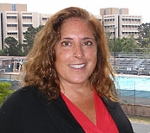
November 2
Saturday
2:00 p.m.
Vollum Lecture Hall
Lisa Hajjar is a professor of sociology at the University of California, Santa Barbara. Her research and writing focus on law and legality, war and conflict, human rights, and torture. She is the author of Courting Conflict: The Israeli Military Court System in the West Bank and Gaza (University of California Press, 2005) and Torture: A Sociology of Violence and Human Rights (Routledge, 2012), and co-editor of Human Rights: Critical Concepts in Political Science (Routledge, 2008). She serves on the editorial committees of Jadaliyya, Middle East Report and Journal of Palestine Studies. She is currently finishing a book about anti-torture lawyering in the United States.
Cosponsored by the Elizabeth C. Ducey Political Science Lecture Fund and the anthropology department
Ahmed Maher: "Whither Egypt? A Biography of an Ongoing Revolution"
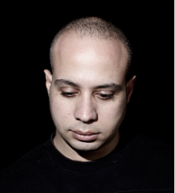
November 8
Friday
4:00 p.m.
Eliot Chapel
Nobel Peace Prize nominee, Ahmed Maher is the Founder and Chief Coordinator of the April 6 Youth Movement, one of the most illustrious pro-democracy youth movements in Egypt. Having organized the masses both in the virtual and real world to a show of strength that brought down a dictator. The A6YM stresses non-violence, a secular ideology and an apolitical stance. Along with a similar group called Kefaya, the April 6 Movement has become the most important organizers of the 18-day peaceful uprising that culminated in President Hosni Mubarak's departure on February 11, 2011.
Co-sponsored by the Elizabeth C. Ducey Political Science Lecture Fund and the Middle East Studies Center of Portland State University